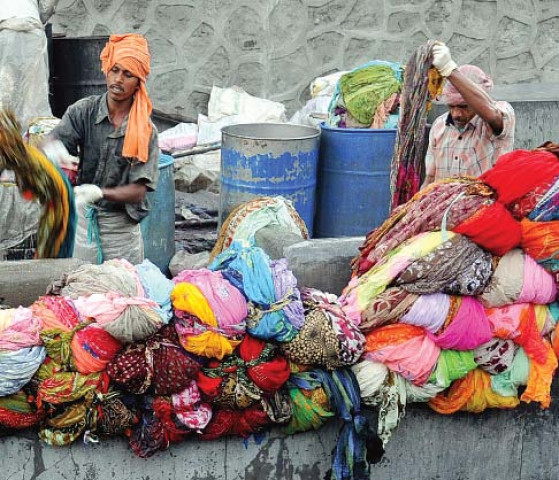Mumbai: the rise of the machines
The increase in market for “white goods” in India isn’t the only concern of the washerfolk of Dhobi Ghat.

“The problem is that we are not getting enough proper clothes because so many homes have washing machines,” he told AFP. “We don’t expect enough work in the future because everyone is washing clothes at home. Where we used to get 100 clothes, now we struggle to get 10.”
The chaotic activity contrasts with the electrical showroom just a short drive away, where neon lighting shows off the regimented lines of shiny chrome, grey and white washing machines on polished marble tiles. Many ordinary Indians, who have seen their disposable incomes rise as the country’s economy expands, can now afford to dispense with the services of the dhobiwallahs for good. Washing clothes at home is not only more convenient but quicker and items are also less likely to disappear in the bundles of linen at the ghat.
The increase in the market for “white goods” in India isn’t the only concern of the washerfolk of Dhobi Ghat, though. Economic growth has also created more people wanting to spend their new-found cash on better places to live. Skyscrapers now loom over Dhobi Ghat, towering half-built or nearing completion out of the matchbox tenements or “chawls” that line the busy roadside and are home to the city’s poorest workers. The city’s 10,000 or so dhobiwallahs wish some money could be found to improve conditions for them.
Badri Kankaiya suggested their plight is a familiar one in modern India: little or nothing changes for the millions at the bottom of the pile, whatever the rate of economic growth. “Dhobi Ghat hasn’t changed in 20 years,” he said. “First it was good, now it’s worse. Now everything is expensive but our work hasn’t increased. Builders can come with their money. The rich man lives in wealth but the poor man will die poor. We only want the land, not the money. We just want to stay here and work hard.”
Published in The Express Tribune, February 3rd, 2011.



















COMMENTS
Comments are moderated and generally will be posted if they are on-topic and not abusive.
For more information, please see our Comments FAQ